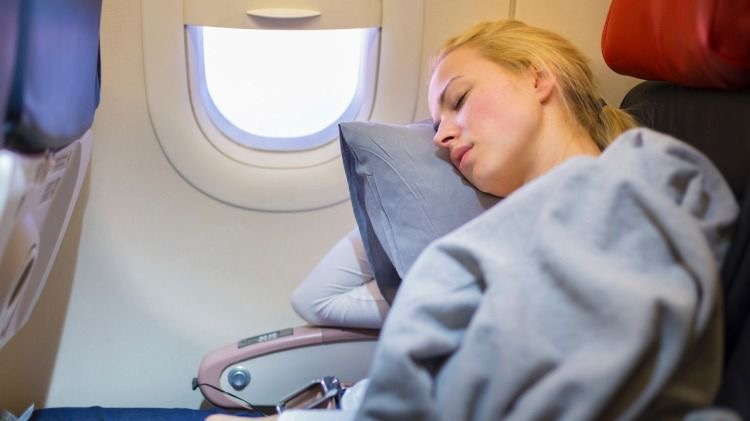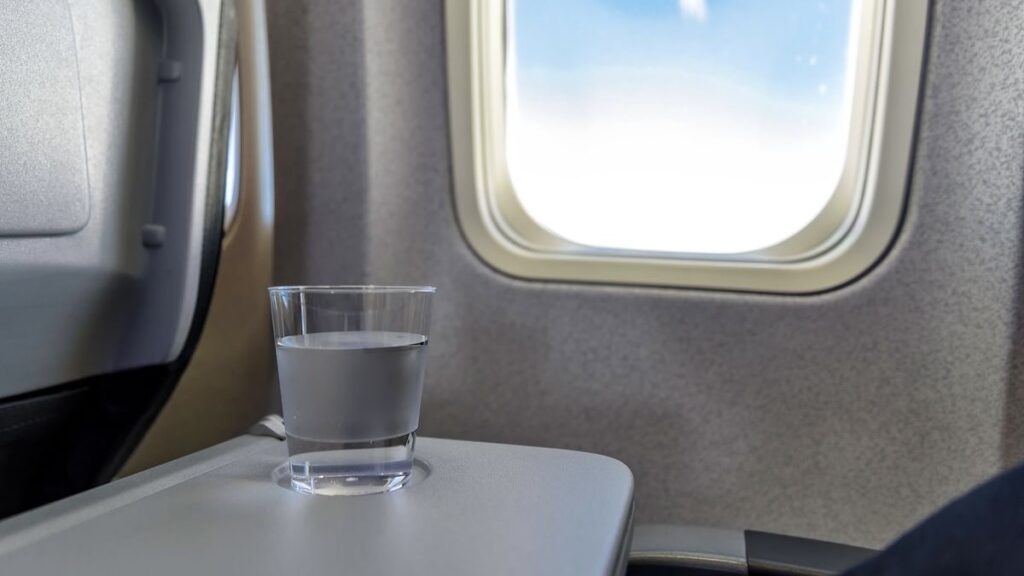Jet lag is the worst!
You step off the plane, ready to explore, but instead, you feel like a zombie in broad daylight. It no longer has to be this way for you. According to some renowed travel expert, doing these ten things will help you beat jet lag:
1. Adjust Before You Leave
One of the biggest mistakes you will ever make is waiting to land before thinking about jet lag. Travel expert Lisa Carter told Travel and Leisure that by gradually shifting her sleep schedule before departure, she finds it easier to beat jet lag.

Heading east? Go to bed earlier. Flying west? Stay up a little later. The goal is to nudge your body closer to your destination’s time zone before you even take off, making the adjustment way less brutal when you arrive.
2. Limit Alcohol Intake Before and During Flight
Almost every travel expert, including Andrea Grisdale and Joyce Falcone, advises against alcohol and caffeine. According to Joyce, limiting alcohol intake prior to and during her flight allows her to sleep well, and by the time she is awake and it’s the departure day, she already skipped a few time zones.
3. Hydrate Like It’s Your Job
Dehydration and jet lag go hand in hand, yet most people don’t drink enough water when they fly. Travel coach Mark Williams follows a simple rule: one cup of water per hour while in the air. He also steers clear of alcohol and caffeine, which only make things worse.

Staying hydrated while flying keeps headaches, fatigue, and post-flight sluggishness at bay. And truly, your body will thank you.
4. Let Light Reset Your Body Clock
Sunlight is nature’s way of telling your body what time it is. Travel blogger Sarah Kim swears by stepping outside first thing in the morning when flying east and avoiding bright light at night when heading west. If you’re stuck indoors, a light therapy lamp can work wonders. Think of it as a cheat code for resetting your internal clock faster.
5. Eat on Destination Time
Meal timing is not just about curbing hunger. It actually influences your body’s internal clock. A frequent traveler noted he eats based on his destination’s schedule before he even gets there.

If it’s dinnertime where you’re headed, eat dinner; even if your stomach thinks it’s still breakfast time. Before you know it, your metabolism will start to sync even before you land, and this makes adjustment smoother.
6. Set Yourself Up for Solid Sleep
If you’re tossing and turning all night, jet lag will hit harder. Wellness coach Mia Johnson relies on a few simple sleep hygiene tricks: earplugs, an eye mask, and white noise to block out distractions. Sticking to a bedtime routine (even in a hotel room) helps too. Oh, and ditch the screens before bed; blue light messes with your sleep more than you think.
7. Try Melatonin (But Don’t Overuse It)
Melatonin is like a gentle nudge to your internal clock. Travel doctor James Bennett recommends a small dose (0.5 to 3 mg) an hour before your new bedtime to help your body adjust.

However, don’t rely on it for too long—he warns against using it for more than a few days, or your sleep cycle could get even more out of whack.
8. Get Active As Soon As You Land
The last thing you might want to do after a long-haul flight is exercise, but it helps big time. An adventure traveler once suggested taking a walk, stretching, or even doing a light workout. Movement gets your blood flowing and wakes you up naturally, so you can shake off that groggy, “What time is it?” feeling way faster.
9. Skip Heavy Meals Before Bed
Stuffing yourself with heavy meals before bed is a very bad idea. Australia Travel Expert Gwen Kozlowski advises not just eating before getting on the plane but doing it lightly. She also added that she usually skips the next meal but never forgets to take a lot of water before bedtime.

Super-heavy meals can ruin your digestion and make it difficult for you to fall asleep. Do healthier meals that contain protein and healthier fats instead to keep your energy level steady.
10. Nap a Bit
People will usually ask if it’s okay to nap. Yes, it is one of the best tips for beating jet lag. It’s actually a lifesaver after a long flight. However, timing is everything. According to an expert, keeping short naps (20 to 30 minutes maximum) is great, but anything longer can make you wake up feeling groggier. So, the goal is to get enough rest to push through until bedtime in your new time zone.
Not Just Tips But Habits
These tips for beating jet lag are not just some sort of magic trick. They are smart habits that could help your body adjust quickly.

So next time you travel like a pro, try a few of these tips out (for instance, staying hydrated while flying and being active). Try as much as you can until you find what works best for you.
